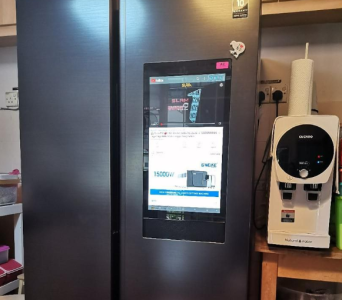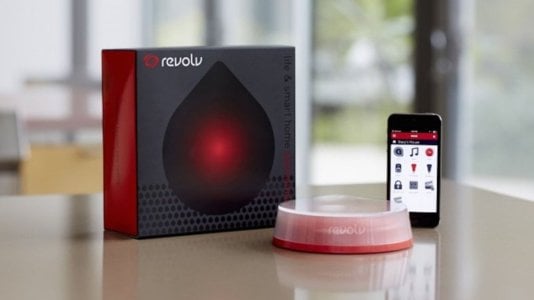Why 'dumb' appliances might be the smartest purchase you'll ever make
We live in an age where everything is getting 'smart'—from phones and TVs to refrigerators and washing machines.
The promise of smart appliances is enticing, with high-tech features like voice commands, mobile app controls, and AI-powered functions.
But are these internet-connected appliances really an upgrade for your home? More and more experts say no.
In fact, when it comes to major appliances, 'dumb' might just be the smartest choice.
On the surface, smart appliances seem incredibly convenient. Who wouldn't want a refrigerator that automatically creates a grocery list or a dryer that sends you a notification when the load is done?
But dig a little deeper, and you'll find some serious downsides.
For one, smart appliances jeopardise your privacy. An investigation by Consumer Reports found that a typical smart refrigerator was sending data back to its manufacturer nearly 19 megabytes per week—much of it concerning users' personal habits and food preferences.
For reference, a megabyte can contain about 100 pages of documents.
Some companies claim that this data is used to contribute new features to your appliance or fix an issue, but in most cases, customers are unaware of what’s being tracked or transmitted.
Smart appliances also depend on a steady internet connection to function properly. If your Wi-Fi goes down, key features will be disabled. This connectivity dependency also makes them prone to hacking.
Additionally, smart appliances often 'brick' or stop working entirely when companies go under or discontinue support. Just ask owners of Revolv smart home hubs that Google acquired in 2014 and disabled in 2016, rendering the $300 devices useless.
Smart appliances not only cost more to purchase, but they also cost twice as much to repair. Due to the components involved—usually including sophisticated chips and circuitry—repair workers tend to charge higher rates to fix them.
Moreover, it can be difficult to find someone who can repair one. Manufacturers often discourage do-it-yourself repair, leaving replacement as the only option for malfunctioning smart appliances.
So, if you value privacy, reliability and repairability, dumb appliances can make more sense.
You can operate them independently without big companies or the internet involved. Their mechanical controls rarely glitch. And when something does break, repairs are often quick fixes.
If you decide to go the smart route regardless, it is recommended to get extended warranties, research reliability, and choose brands with security updates and repair programs.

What’s your take on this, members? Do you prefer smart appliances over traditional ones? Let us know in the comments below!
The promise of smart appliances is enticing, with high-tech features like voice commands, mobile app controls, and AI-powered functions.
But are these internet-connected appliances really an upgrade for your home? More and more experts say no.
In fact, when it comes to major appliances, 'dumb' might just be the smartest choice.
On the surface, smart appliances seem incredibly convenient. Who wouldn't want a refrigerator that automatically creates a grocery list or a dryer that sends you a notification when the load is done?
But dig a little deeper, and you'll find some serious downsides.
For one, smart appliances jeopardise your privacy. An investigation by Consumer Reports found that a typical smart refrigerator was sending data back to its manufacturer nearly 19 megabytes per week—much of it concerning users' personal habits and food preferences.
For reference, a megabyte can contain about 100 pages of documents.
Some companies claim that this data is used to contribute new features to your appliance or fix an issue, but in most cases, customers are unaware of what’s being tracked or transmitted.
Smart appliances also depend on a steady internet connection to function properly. If your Wi-Fi goes down, key features will be disabled. This connectivity dependency also makes them prone to hacking.
Additionally, smart appliances often 'brick' or stop working entirely when companies go under or discontinue support. Just ask owners of Revolv smart home hubs that Google acquired in 2014 and disabled in 2016, rendering the $300 devices useless.
Smart appliances not only cost more to purchase, but they also cost twice as much to repair. Due to the components involved—usually including sophisticated chips and circuitry—repair workers tend to charge higher rates to fix them.
Moreover, it can be difficult to find someone who can repair one. Manufacturers often discourage do-it-yourself repair, leaving replacement as the only option for malfunctioning smart appliances.
So, if you value privacy, reliability and repairability, dumb appliances can make more sense.
You can operate them independently without big companies or the internet involved. Their mechanical controls rarely glitch. And when something does break, repairs are often quick fixes.
If you decide to go the smart route regardless, it is recommended to get extended warranties, research reliability, and choose brands with security updates and repair programs.
Key Takeaways
- A study revealed that 'smart' appliances can jeopardise consumers’ privacy.
- According to Consumer Reports, a typical smart refrigerator was sending data back to its manufacturer nearly 19 megabytes per week.
- If connectivity issues arise or a manufacturer stops supporting a smart appliance, it can potentially become unusable, known as 'bricking'.
- Smart appliances tend to be more expensive to maintain and repair due to the cost of components and the need for specialised repair workers.
What’s your take on this, members? Do you prefer smart appliances over traditional ones? Let us know in the comments below!









